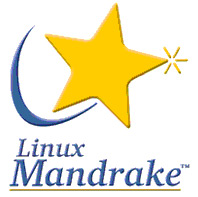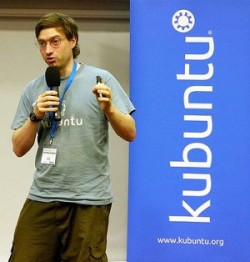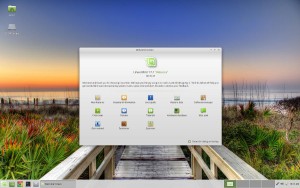If you believe what you read, which isn’t always a good idea, Nadella & Company is good with the fact that Windows’ market share is shrinking and the company is more than willing to share market space with others, like OS X, Chrome OS, and presumably Linux. The common knowledge is that the folks in Redmond have come to accept the future and understand that Windows will no longer continue being the cash cow on which an empire was built. Microsoft, going forward, will be more humble than it was in the past and will be leaving its plans for world domination behind.
 I suspect this new Microsoft is humble like a fox, or more precisely, like a particular lab rat I used to watch on television: that each night as the lights are being dimmed, somewhere in the maze of the Redmond campus an assistant turns to Satya Nadella and says, “What are we going to do tomorrow, boss?”
I suspect this new Microsoft is humble like a fox, or more precisely, like a particular lab rat I used to watch on television: that each night as the lights are being dimmed, somewhere in the maze of the Redmond campus an assistant turns to Satya Nadella and says, “What are we going to do tomorrow, boss?”
“The same thing we do every day, Pinky — try to take over the world.”
In other words, the humbleness is a distraction and Microsoft’s new face is merely a mask. It seems that Nadella, the man behind the mask, is sneaky in ways that Ballmer only wanted to be, but couldn’t because his brain wasn’t wired to understand subtlety.
Christine Hall has been a journalist since 1971. In 2001, she began writing a weekly consumer computer column and started covering Linux and FOSS in 2002 after making the switch to GNU/Linux. Follow her on Twitter: @BrideOfLinux





 I’ve spent a good deal of time, as well, kicking this around with my partner-in-ink Larry Cafiero. And some of the things I’ve taken away were not gotten face-to-face: Folks like Steven Vaughan-Nichols and Matt Hartley have discussed it through their preferred media in one way or another.
I’ve spent a good deal of time, as well, kicking this around with my partner-in-ink Larry Cafiero. And some of the things I’ve taken away were not gotten face-to-face: Folks like Steven Vaughan-Nichols and Matt Hartley have discussed it through their preferred media in one way or another.

 Mandriva S.A., the French company behind Mandriva, the distribution that long time Linux users will remember as Mandrake, died this week at the age of sixteen. The announcement came in the form of a
Mandriva S.A., the French company behind Mandriva, the distribution that long time Linux users will remember as Mandrake, died this week at the age of sixteen. The announcement came in the form of a 


 Since the introduction of Fedora.next — the umbrella program for the roadmap for the distro going forward — the distro comes in three basic flavors: Workstation, Server and Cloud. Workstation is the desktop/laptop version — and workstation version for businesses. Cloud and Server are pretty self-explanatory.
Since the introduction of Fedora.next — the umbrella program for the roadmap for the distro going forward — the distro comes in three basic flavors: Workstation, Server and Cloud. Workstation is the desktop/laptop version — and workstation version for businesses. Cloud and Server are pretty self-explanatory.



